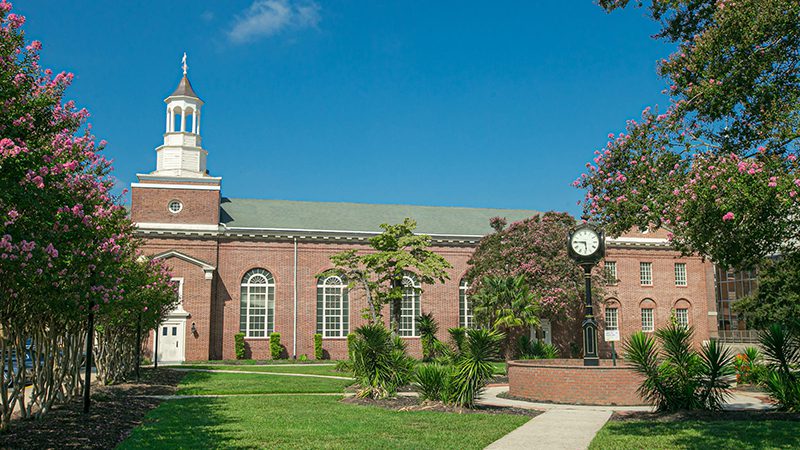UNCF Makes the Case for HBCU Funding, Despite House Cuts

Media Contact
Roy Betts UNCF Communications 240.703.3384 roy.betts@uncf.org
The House Appropriations Committee is advancing its education funding bill with significant cuts
UNCF (United Negro College Fund) today noted that the House Appropriations Committee panel on education released the text of its fiscal year (FY) 2024 funding bill overnight, and the appropriation levels being advanced pale in comparison to the requests for historically Black colleges and universities (HBCUs).
One program not being funded is the $50 million for research infrastructure, which was funded initially in FY23, in response to UNCF and other organizations showcasing the need for debt-free infrastructure support for HBCUs. That research infrastructure funding level was also based on a recent Government Accountability Office study on HBCU needs.
“The House majority is advancing their priorities, but they must understand the unique value that HBCUs bring to our nation,” said Dr. Michael L. Lomax, president and CEO, UNCF. “HBCUs are economic engines that provide stimulus to our regions and nation that far exceeds the congressional investments. Even if elected officials do not factor in the ability of HBCUs to educate those from lower socio-economic backgrounds, which they do far better than more resourced institutions, they should be willing to meet our aspirational funding levels based on HBCUs’ $15 billion collective impact annually on the nation’s economy.”
“HBCUs have four top priorities right now,” said Lodriguez V. Murray, senior vice president for public policy and government affairs, UNCF.
“First priority, to fully fund the Title III Strengthening HBCUs program, which means an increase to $500 million at a minimum. Second, HBCUs were marred by bomb threats all last year. The FEMA Non-Profit Security Grant Program must include a $100 million line item specifically for HBCUs annually until the institutions are secured. Third, the infrastructure needs of HBCUs must be addressed in a debt-free way, and we support President Biden’s FY24 $300 million effort for research infrastructure.
“Last, but not least, the Pell Grant must be doubled if we are serious about helping students from lower socio-economic backgrounds succeed,” said Lodriguez.
“Those are our priorities. We will continue to make sure all members are aware of them, whether Republicans or Democrats; but we call on those members who represent our institutions to truly take a stand. The current bill does not adequately address our priorities, and we do not support it in its current form,” Lodriguez said.
Find the House of Representatives draft bill to fund the federal Departments of Labor, Health and Human Services, Education, and related agencies here.
###
About UNCF
UNCF (United Negro College Fund) is the nation’s largest and most effective minority education organization. To serve youth, the community and the nation, UNCF supports students’ education and development through scholarships and other programs, supports and strengthens its 37 member colleges and universities, and advocates for the importance of minority education and college readiness. While totaling only 3% of all colleges and universities, UNCF institutions and other historically Black colleges and universities are highly effective, awarding 15% of bachelor’s degrees, 5% of master’s degrees, 10% of doctoral degrees and 19% of all STEM degrees earned by Black students in higher education. UNCF administers more than 400 programs, including scholarship, internship and fellowship, mentoring, summer enrichment, and curriculum and faculty development programs. Today, UNCF supports more than 60,000 students at over 1,100 colleges and universities across the country. Its logo features the UNCF torch of leadership in education and its widely recognized trademark, ‟A mind is a terrible thing to waste.”® Learn more at UNCF.org or for continuous updates and news, follow UNCF on Twitter at @UNCF.